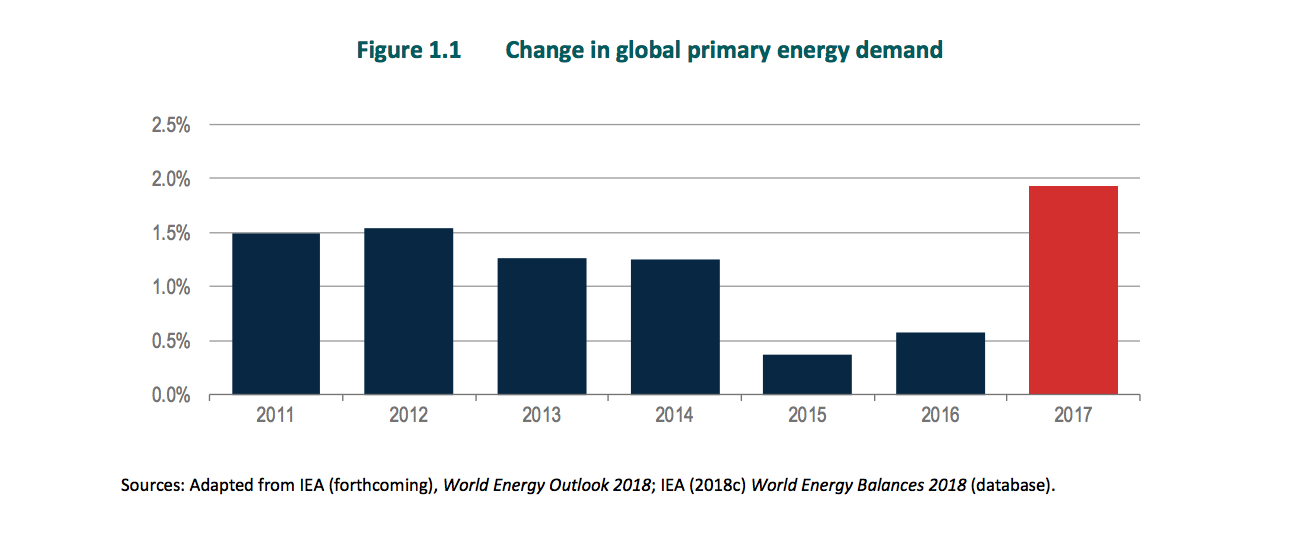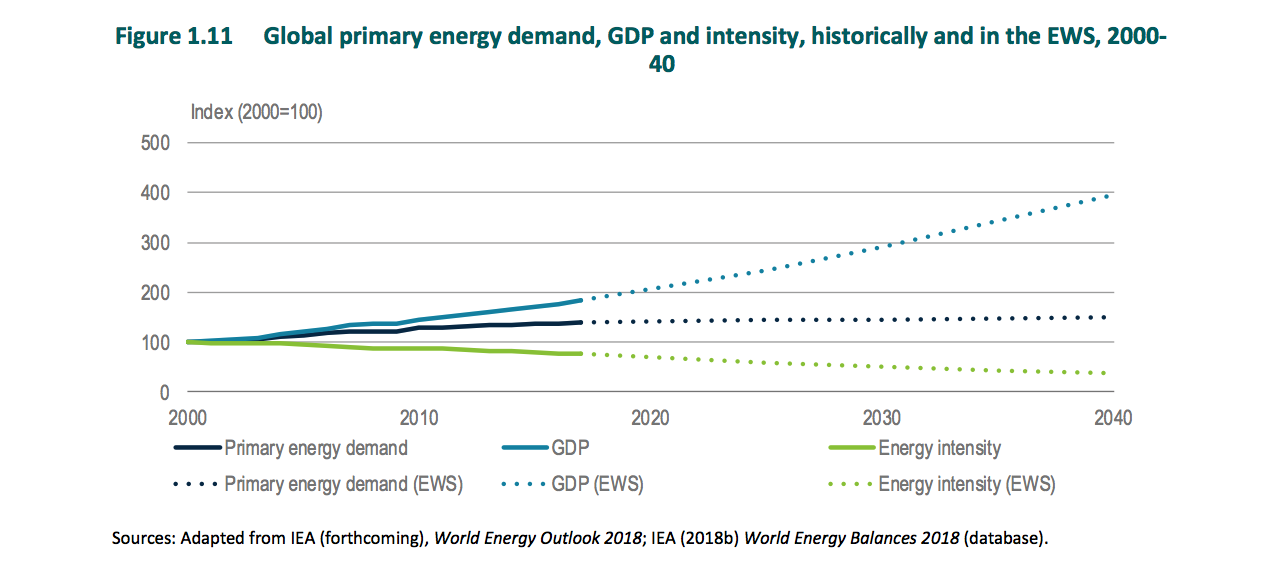
Energy Efficiency Resources in a Perfect World
Amy Hou | December 3, 2018 | Energy & Sustainability
Energy Efficiency Resources Are Underestimated
What comes to mind when you think of energy efficiency? Not much excitement? Many economic theorists would agree with you, as they believe energy efficiency is limited and that its costs will inevitably rise. This apathy has led to many global players under-utilizing and under-appreciating energy efficiency, which is a shame. Energy efficiency resources, or the quantifiable savings yielded from energy efficiency, have huge potential to help solve some of the world’s largest problems, starting with climate mitigation.
Simply put, energy efficiency resources would be better utilized if those managing them were better educated around how to use them. Amory Lovins, physicist and Chief Scientist at the Rocky Mountain Institute, found in his research that modern energy efficiency has a greater supply and lower costs than most people realize. If people looked at the whole, rather than just the sum of its parts, they would see its full potential.
Take everyday energy managers, for example. They most likely struggle to get buy-in from executives to make large-scale investments in energy efficiency, because they’re only able to estimate the ROI of individual projects, which don’t always make for an appealing case in the short term. If they followed the principles of holistically managing energy efficiency resources, they would be able to calculate and prove whole-building savings from the sum total of all their projects.
According to Lovins, the aggregate savings of energy efficiency resources are much larger than the savings from individual technologies combined. But right now, governments and businesses are using complex, disparate models to drive energy efficiency. Simpler energy efficiency resources with “integrative design” would drive savings across the entire building or vehicle in question, making the full value of energy efficiency resources abundantly clear.
An Efficient World Scenario (EWS)
So, what does a world that fully utilizes its energy efficiency resources look like? Theoretically, a world much less worried about climate change. Even a world powered on 100% renewables needs energy efficiency to stay viable. According to IEA’s 2018 report, 2017 saw a sharp two percent increase in global primary energy demand, mostly from emerging economies.
The report describes an Efficient World Scenario (EWS), or “what would result if all available energy efficiency measures were implemented between now and 2040,” using cost-effective measures and available technology. Surprisingly, an EWS could lower emissions by 2040, despite a doubling of the global economy. It would also help companies and households achieve several of the UN Sustainable Development Goals (SDGs), such as exceeding the energy efficiency target and reducing air pollutants.
Turning EWS Into a Reality
It would seem as though we’re still far off from achieving an EWS, but as the report stated, the resources we need are already available. A number of energy management software and services serve to help governments and businesses reach their full energy efficiency potential and achieve holistic savings. Moreover, data automation technology can cost-effectively streamline and centralize energy data collection, so global energy consumers can measure the end-to-end impacts of their energy efficiency initiatives.
Want to see integrative energy efficiency at work? Check out our recent conversation with Fortune 500 manufacturer Arconic to learn how their team built a single source of truth for energy management.
You might also be interested in:
- The Next Frontier in Energy Efficiency: “Greening” Multifamily Housing
- How to Prepare for the Future of Sustainability
- Can Supermajors Lead the Renewable Energy Revolution?
If you like what you’re reading, why not subscribe?
About Amy Hou
Amy Hou is a Marketing Manager at Urjanet, overseeing content and communications. She enjoys writing about the latest industry updates in sustainability, energy efficiency, and data innovation.
You May Also Like
Support Business Continuity by Embracing ESG
Honor Donnie | March 18, 2022 | Energy & Sustainability


